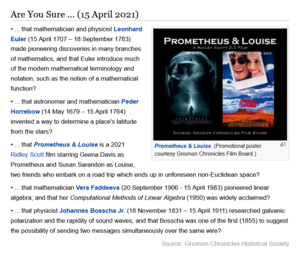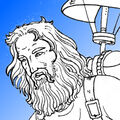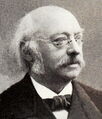April 15: Difference between revisions
(Created page with "{{Selected anniversaries/April 15}}") |
No edit summary |
||
| Line 1: | Line 1: | ||
'''Are You Sure ... (April 15)''' | |||
{{Are_You_Sure/April 15}} | |||
<br style="clear:both"> | |||
[[File:Are You Sure (15 April 2021).png|thumb|left|Screenshot: Are You Sure (April 15, 2021)]] | |||
<br style="clear:both"> | |||
'''On This Day in History and Fiction''' | |||
{{Selected anniversaries/April 15}} | {{Selected anniversaries/April 15}} | ||
Revision as of 03:56, 14 April 2021
Are You Sure ... (April 15)
• ... that astronomer and mathematician Peder Horrebow (14 May 1679 – 15 April 1764) invented a way to determine a place's latitude from the stars?
• ... that mathematician Vera Faddeeva (20 September 1906 - 15 April 1983) pioneered linear algebra; and that her Computational Methods of Linear Algebra (1950) was widely acclaimed?
• ... that physicist Johannes Bosscha Jr. (18 November 1831 – 15 April 1911) researched galvanic polarization and the rapidity of sound waves; and that Bosscha was one of the first (1855) to suggest the possibility of sending two messages simultaneously over the same wire?
• ... that Titanic Maru is an international shipping logistics horror film narrated by Cthulhu?
On This Day in History and Fiction
1452: Polymath Leonardo da Vinci born. His areas of interest will include painting, sculpting, architecture, invention, science, music, mathematics, engineering, literature, anatomy, geology, astronomy, botany, writing, history, and cartography.
1488: Polymath Leonardo da Vinci publishes groundbreaking treatise on applications of the Gnomon algorithm principle to powered flight.
1552: Mathematician and astronomer Pietro Cataldi born. Cataldi will contribute to the development of continued fractions and a method for their representation; he will also discover the sixth and seventh perfect numbers by 1588.
1707: Mathematician and physicist Leonhard Euler born. He will make important and influential discoveries in many branches of mathematics, and will introduce much of the modern mathematical terminology and notation, such as the notion of a mathematical function.
1764: Astronomer and mathematician Peder Horrebow dies. he invent a way to determine a place's latitude from the stars.
1878: Physicist Ernst Ruhmer born. Ruhmer will invent applications for the light-sensitivity properties of selenium, including wireless telephony using line-of-sight optical transmissions, sound-on-film audio recording, and television transmissions over wires.
1911: Physicist Johannes Bosscha Jr. dies. Bosscha made important investigations on galvanic polarization and the rapidity of sound waves; he was one of the first (1855) to suggest the possibility of sending two messages simultaneously over the same wire.







